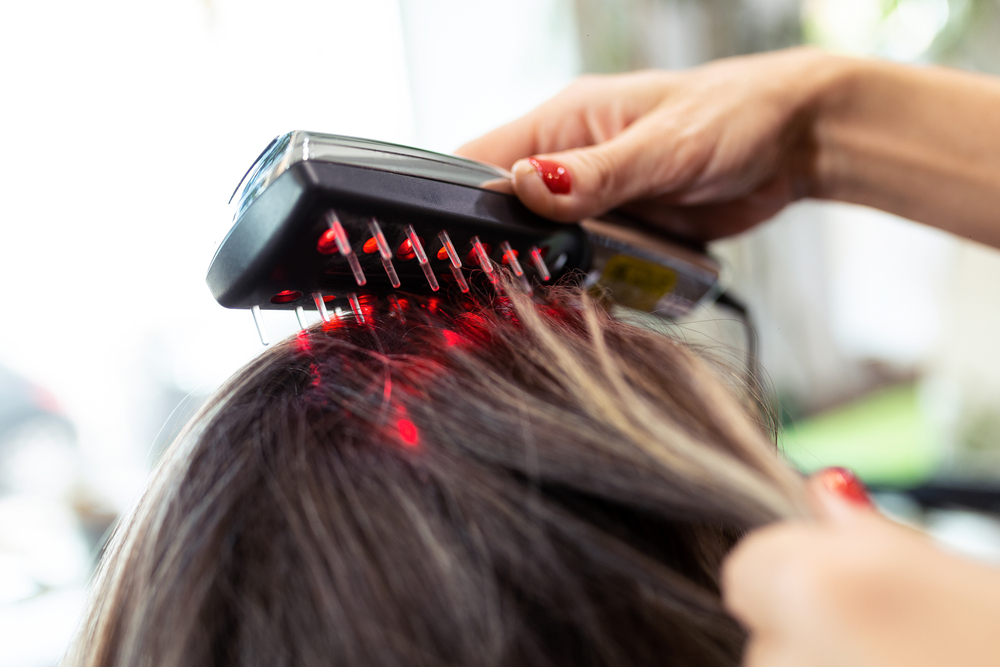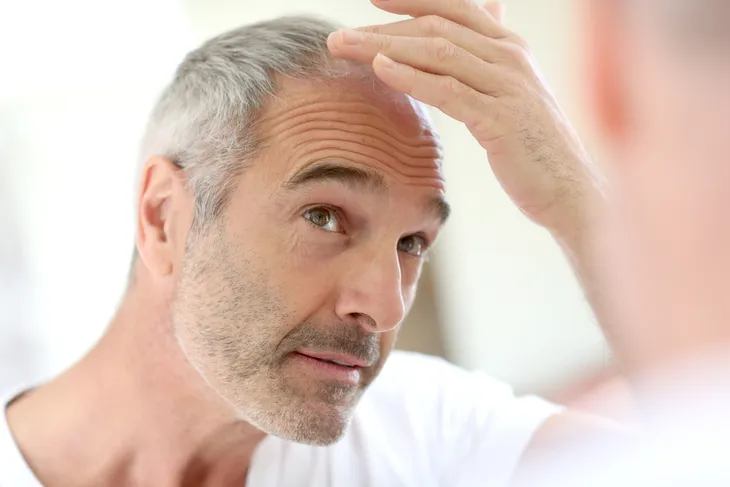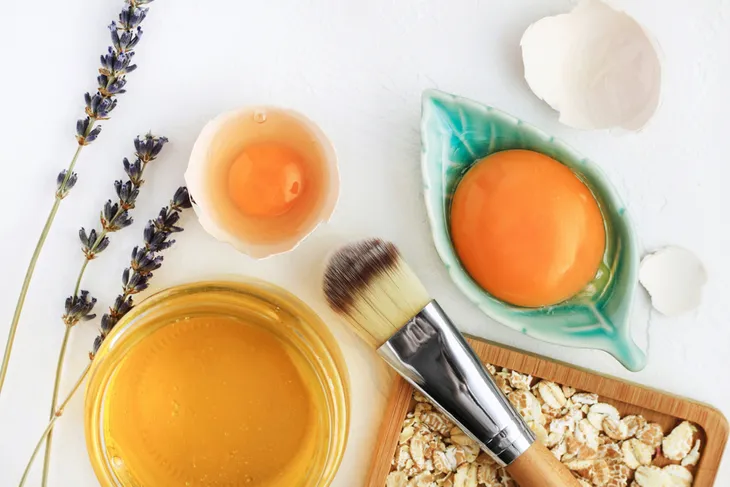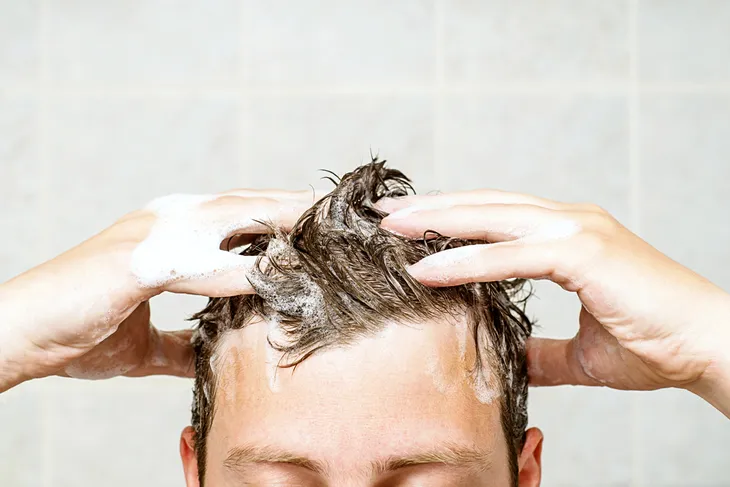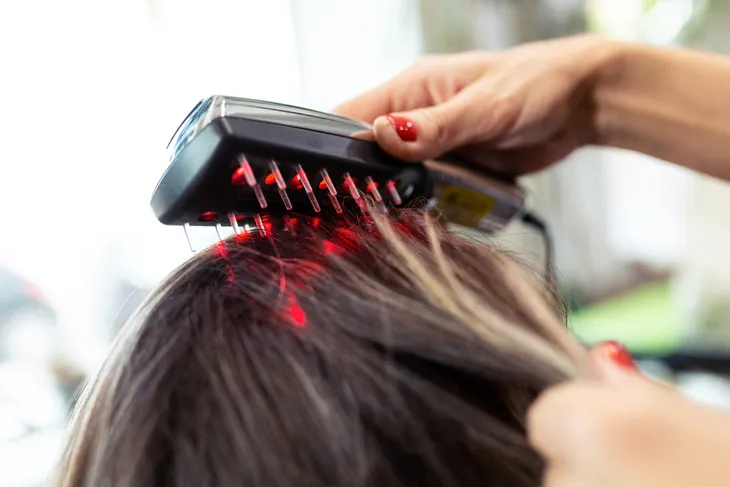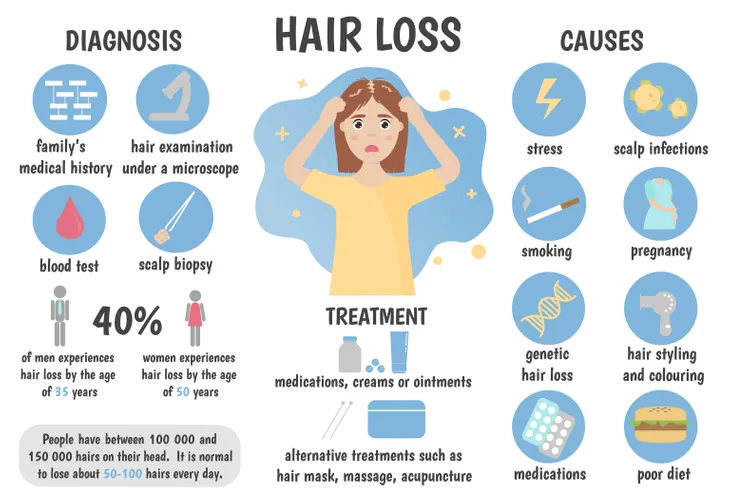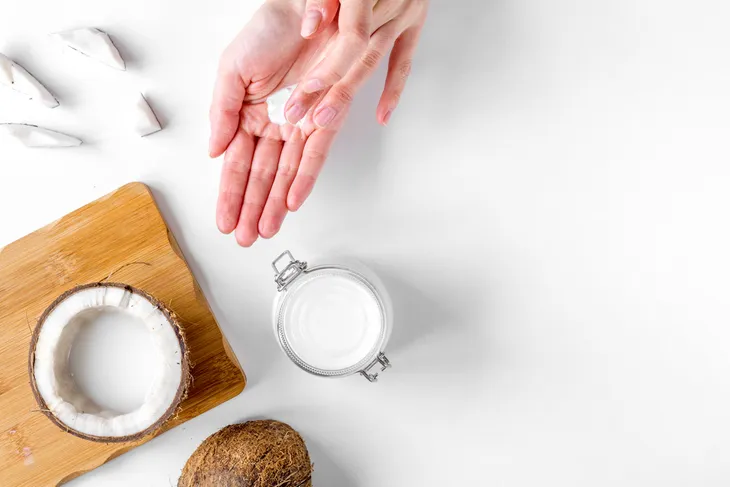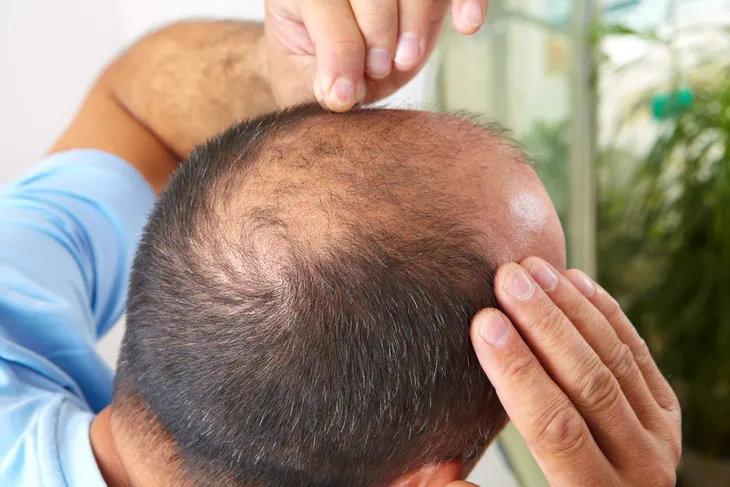Hair loss—the final frontier. Well, not really…but for a lot of men (and some women), it feels like moving into uncharted territory that they’re not sure how to deal with. With that being said, the marketers out there have jumped on the opportunity to create products that are designed to retain remaining hair or even encourage it to grow back.
However, there are ongoing debates about the effectiveness of some of these treatments, and there can be side effects. That’s not to say that none of them work— so let’s take a look at eight commercial and holistic remedies that may work for you…
Rogaine
Perhaps we’ll start with medically approved approaches to hair loss reversal—including Minoxidil (Rogaine). The Mayo Clinic explains this over-the-counter treatment approved by the FDA is designed to be rubbed directly into the scalp.
The source notes that “some” people enjoy hair regrowth (or stop losing hair) after using this product, but what percentage is unknown. The effect “peaks at 16-weeks” and you need to regularly apply it to maintain the benefits, it adds. There may be some excessive shedding in the beginning that can be scary. This usually resolves in the first month. For some types of hair loss, minoxidil needs to be used long term for maintenance. The clinic said possible side effects include scalp irritation, hair growth in unwanted areas (like the face), and a rapid heart rate.
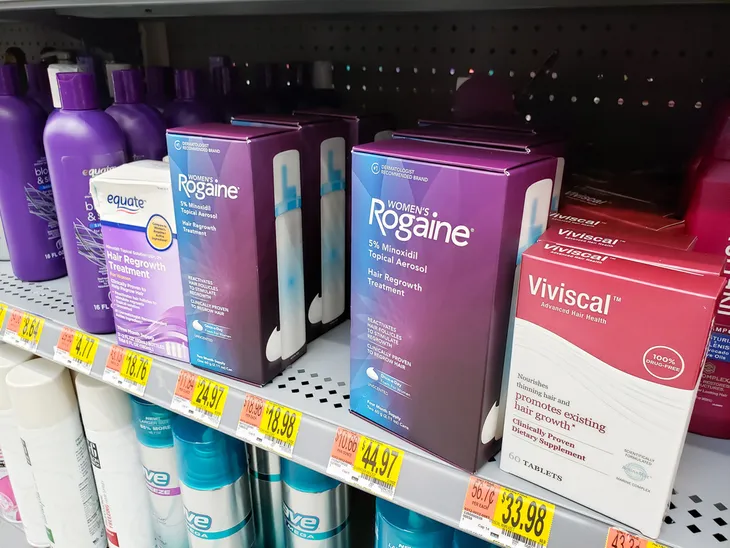 David Tonelson / Shutterstock.com
David Tonelson / Shutterstock.comPropecia
This is another FDA-approved treatment (also known as Finasteride) that requires a prescription. It comes in pill form and it has been shown to slow hair loss and in some cases, encourage new hair growth, according to the Mayo Clinic.
However, as with many prescription drugs, there’s a chance for some rather more serious side effects—in the case of Propecia, it can crush libido. There’s concern it may be associated with the risk of prostate cancer. The exact mechanism is unclear. It seems to decrease screening labs often used to screen for prostate cancer and may decrease symptoms that leads to later detection. It’s meant only for men, but the clinic said pregnant women should avoid even touching the stuff.
Eggs
You’ve heard the expression “having egg on your face,” but how about on your head? However, StyleCraze outlines techniques for using these oval wonders to stimulate hair follicles (we can’t vouch for its effectiveness).
One way eggs can assist with hair recovery is by consuming them, according to the source. Eggs can become part of your daily diet to deliver essential nutrients to help hair recover. However, the more direct route is to apply a “hair pack” that delivers protein deep into the scalp. The source outlines different variations for different hair types and how to apply it.
Special Shampoo
Men’s Fitness magazine makes mention of Nioxin shampoo, which is designed to combat thinning hair. While there’s definitely no guarantee you’ll wake up after using it with a full head of hair, “Nioxin and some other products can help keep your scalp in tip-top shape to improve the look of any hairs you do have left on your head,” offers the source.
While it won’t literally sprout new hairs on your head, it will give the appearance of fuller hair, and isn’t this all about appearance anyway? The source also recommends a rosemary and mint-infused shampoo (called Bio Follicle’s Rosemary & Mint shampoo) that may help stimulate the scalp—and the bonus is that there aren’t any harmful substances in it.
Laser Combs
These may sound like they’re from the future, but apparently they’ve existed for quite some time and the results can be positive. The concept is to glide this laser “comb” over your scalp a few times a week to see results, which at least one study backs up, according to a 2009 Wall Street Journal article.
These “low-level” lasers are apparently safe “and likely do act on cellular compounds that can spur hair growth,” notes the source. The study cited claims an average gain of 7-percent in hair density over a 26-week period (using a specific product called HairMax LaserComb). There’s some preliminary data that light therapy may stimulate hair follicle and increase hair growth but more research is needed. However, other experts question the price of these items (which were up to $500 in 2009) for the results they deliver.
Electrical Pulses
This non-surgical treatment uses focused electrical impulses to stimulate areas where hair has disappeared, according to Medic8.com. The treatment is non-invasive and involves electrical pulses “emitted at a low frequency which means only a minimal penetration of the scalp.”
This method is recommended for men or women that are experiencing hair loss from pattern baldness, natural thinning or from chemotherapy associated with cancer treatment. It isn’t the best choice if you’re losing hair due to certain medications, poor diet, or “skin trauma on the scalp,” so it’s probably best to consult a doctor before starting a treatment that can last up to 6-months, notes the source.
Coconut Oil
Coconut oil has been touted as a miracle cure for several health problems (from dry skin to bad breath), although doctors are debating some of the points. Meanwhile, over at TheHealthSite.com, the benefits of coconut oil to combat hair loss are being applauded.
Coconut oil mostly works by keeping hair moisturized and healthy with less breakage. It doesn’t actually increase hair growth.
Surgery
If you’re really bummed about your hair loss, or it’s impacting your flourishing modelling career, then you may want to go this route. Men’s Fitness Magazine calls it the “best fix by far for replacing lost hair”. And these transplants have come a long way from your grandfather’s ridiculous-looking plugs, it adds.
The process is a pretty exact science: the doctors surgically remove your own hair from the back of your head, “dissects every hair graft under a microscope, and then plants the individual grafts onto hair-thin areas of your scalp with tiny incisions.” There’s another surgical method called follicular unit extraction that doesn’t leave any sign of scarring, adds the source. Body hair can also be harvested if you’re completely bald on top, it explains.
